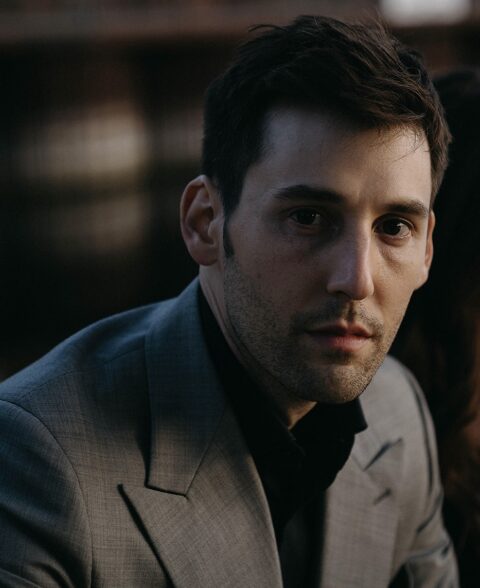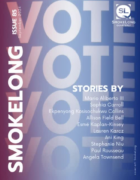First and foremost, the imagery you employ throughout your essay is striking and immediately compelling. For instance, the second paragraph features multiple metaphors likening sky and cloud formations to decadent desserts—intriguing connections on their own—yet these imaginary foods are notably “ruined” in some way (e.g., the cake is “rusted” and filled with “veins of ore”), an effect acknowledged as “deviations … made normal in my own flipped and suspended mind.” How might this speak to your altered perspective of the world around you following the brain injury?
Thank you! Off rip, that is so very kind. And also a fascinating question because I never noticed the ruined qualities of the food descriptors before. But you’re totally right. My best guess is that, for a good while after the shooting, I thought of my life as wasted, shortened, and ruined. And while I no longer totally believe that, it is inarguable that my life was dramatically altered in a big way post-injury. Perhaps those more gnarly modifiers are a product of my darker residual feelings. A leftover sensation that nothing is ever quite right, never quite what it should be or used to be.
In addition to the obvious physical impact of the injury, you allude to feeling like something of an “outsider” (e.g., needing to view the world in “dark mode”), alienated from even yourself (e.g., acknowledging the presence of a “shadow me”). Was this the motivation behind your handling of the essay’s timeline, using the momentary fear of the creeping car to return first to a previous incident of harassment and then to the earlier assault before rushing back to the present?
I think that was part of it, yes. A different writer might’ve gone in chronological order starting with the “action” scene, transitioning to the next night, and then ending the same way I did with the two figures about to converge. But I really believe something is lost in that structure. Something that mimics for the reader what it’s like to live with trauma disorders, hypervigilance, hyperarousal. How easily a response can be triggered, seemingly out of nowhere, even in something that is supposed to be healthy—something that is supposed to clear the mind in a pleasant, ritualistic kind of way, like a nighttime jaunt around the neighborhood. The extra context that the current timeline provides, to me, adds a depth and a baseline tension that would be missing otherwise.
It is interesting to note that, despite its obvious significance, the attack that caused the brain injury is only briefly referenced within your essay. What was your reasoning for focusing instead on these latter stages of the recovery?
Funny you should ask! By the time this piece is out in the world, so too will my debut, Friendly Fire: A Fractured Memoir from HarperCollins (which SmokeLong kindly reviewed here), in which I write all about that incident in grave detail. I wanted this piece to be in conversation with my book—a sort of postscript, if you will. So, if you’re interested, you can read all about it there (and I thank you for it!).
The essay’s content could have easily lent itself to a much longer piece. Why did you choose the flash form to capture this particular story?
I love brevity. I could stop there (haha), but seriously, I think I work best in the short form. I love stripping an idea down to its bones and then throwing some pretty paint on it. Even my full-length memoir is made up of ninety-some flash-like chapters. It’s easier and much more satisfying for my brain, post-injury, to focus on one tiny chunk at a time. The short fractures also allow me to put a lid on the springy overstimulation that is dying to jump out of my head, while maintaining a certain mosaic, Gestalt property to which I really take.
Considering the unique nature of the subject matter, when you were writing this essay, were there any existing ones you could turn to for inspiration?
This piece was actually a direct result of Steve Edwards’ craft talk on movement in flash (a brilliant lesson that I’ve returned to again and again), which kicked off A SmokeLong Summer 2024. He described an uncanny moment he experienced while walking around town, and it reminded me of the events in “Convergence,” which happened to me just two weeks prior. By the end of the talk, I had a completed first draft. I was also reading a ton of Brian Evenson, horror writer extraordinaire, at the time, and I think some of his influence creeped in as well, much in the way a demonic forest cryptid on a mission would.



 The SmokeLong Grand Micro Contest (The Mikey) is now an annual competition celebrating and compensating the best micro fiction and nonfiction online.
The SmokeLong Grand Micro Contest (The Mikey) is now an annual competition celebrating and compensating the best micro fiction and nonfiction online.